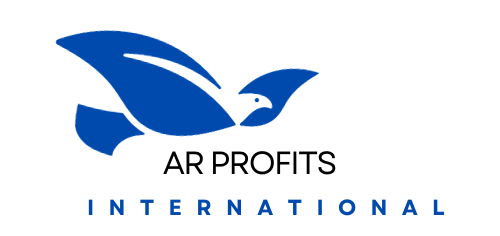Podcasting – Monetization Via Sponsorships Or Patreon
Podcasting can be an excellent way to grow an audience, but what if you need additional income streams or want to expand your business? Luckily there are multiple strategies you can employ in this regard.
Sponsorships can be an effective strategy. Reaching out directly to businesses whose products or services coincide with those of your target audience and pitching them on advertising with you may be one approach.
Producing Engaging Podcast Content
Podcasting can be a profitable business venture, but the first step lies in producing engaging content to lure listeners in. Utilize quality recording equipment and learn compression and equalization techniques to enhance sound quality of episodes so listeners don’t get distracted by background noise or humming; additionally take care in crafting engaging episode titles and descriptions to draw listeners in!
Engaging podcasts require more than good recording equipment and skills; it requires an honest approach to your chosen topic. Try sharing personal stories that connect back to the topic of your show while building rapport and trust between host and listeners – this can increase long-term engagement!
How to generate Income by podcasting
Many podcasters can generate income through sponsorships, which typically consist of companies paying to advertise on their shows. Sponsorship ads typically play during either the beginning or middle of an episode and pay-out amounts vary based on duration and size of ad placements.
One way to make money by podcasting is through offering subscription services that give subscribers early access to episodes and premium content. These subscription services, typically run through membership platforms like Patreon, can generate ongoing monthly support from listeners that can be turned into ongoing income for your podcast.
Podcasts can also make money through selling merchandise such as T-shirts and mugs with their show’s logo, iconography or signature phrases printed on them. Hosting an online store to sell these items can be cost-effective and hassle-free; payments will be collected directly by the podcast who then ships out the merchandise directly.
Podcasters can add another monetization strategy to their toolbox by asking their listeners for donations through platforms such as Venmo, GoFundMe or Patreon. As podcasters are usually self-funded projects, it is recommended they only request money when certain they know it will help expand and sustain the show for years to come – such as purchasing microphones or hiring interns to increase production capabilities.
Donors can be recognized for their contributions by giving shout-outs in future episodes or sending customized thank you cards, depending on the size and scope of their podcast show. In-person meetups may even be hosted to create a sense of community among listeners. Events include live podcast recordings, webinars or in-person workshops with various ticket prices; many podcasters find this form of monetization more rewarding than solely relying on advertising revenue; however it should be remembered that hosting these events requires time and resources that could otherwise go toward production of the podcast itself.
Seeking Sponsorships
Many podcasters make money through sponsorships, or paid advertisements of products or services, which provide steady streams of income while building brand recognition among their audience. Although this might not be the most lucrative route, sponsorships can still provide steady revenues while helping build brand recognition within your target market.
Attracting sponsors requires creating something your listeners find valuable and pertinent to their lives. For example, if your podcast focuses on running, partner with a running shoe company to run ads with discounts on new shoes for your listeners. Or if gardening is your area of expertise, seek out gardening supply companies to promote their products through advertising on your podcast.
Podcast sponsors often pay a set amount per episode or total downloads of your show, making this an attractive option if you’re just getting started and need an easy source of income until your audience grows. Other companies will pay according to how many sales or signups your podcast brings them, known as Cost Per Action (CPA), using coupons or links provided by sponsors for use by listeners when purchasing their products or services.
Your podcasting can also make money through affiliate programs, which will pay you a commission whenever someone clicks an ad and purchases something related to an episode of your show. This model may prove lucrative if your audience is large and engaged; however, for smaller podcasts it can be challenging as no guarantees can be given as to listenership or sales from each episode.
Some podcasts can monetize through membership tiers, where listeners pay an annual subscription fee in exchange for premium content or other perks. If your niche audience can develop loyalty quickly and sustain it long term, membership tiers could be an effective monetization strategy.
Additionally, podcasters may also earn money through digital products that include printables, ebooks and online courses. While this option requires more effort on your part, it can provide additional income while building strong brand recognition for your podcast.
No matter the method you choose to monetize your podcasting, remember that building an audience and making income takes time. Be patient as you experiment with various approaches until finding one that works well with your specific podcast. With any luck, your endeavor could even grow into full-time business or become your sole source of income! Good luck and best of luck with it all!
Utilizing Patreon
Patreon is a platform that enables fans of creators, like podcasters, to pay directly for exclusive content via subscription fees. For podcasters this translates to an income stream that can transform a hobby into a profession. While Patreon may be helpful when starting out podcasting, sometimes building up a separate subscriber network that could eventually syndicate through Apple Podcasts or other apps and platforms might be better approaches for certain podcasts.
Create an RSS feed specifically tailored to subscribers that grants them access to exclusive episodes or content not available through your free shows, such as behind-the-scenes videos, early access episodes, live Q&A sessions, or other perks not found elsewhere on your podcasts. This type of podcasting can create high levels of engagement with your audience while serving as an alternative form of advertising on your show.
If you want to use this monetization strategy, you will have to work hard at building an audience interested in your content. While this may take some time, the payoff in terms of loyalty and support from an engaged following will far outstrip advertising revenue alone.
Patreon strategies that work require offering tailored tiers of subscription services that align with the needs and desires of your audience. As more services meet this criteria, more subscribers and donations you’ll gain. Depending on your target demographics, additional products and services such as consulting or design may also be appropriate in addition to subscription offerings on your podcast.
Make sure that your audience knows you appreciate their support with a Thank You banner on your podcast’s website, or mention them by name at the end of your show, to show your thanks for listening and show you appreciate what they’ve done for you!
At its core, podcasting’s ultimate purpose is to reach a wide audience and generate revenue. Advertisers and sponsors are popular means of monetising podcasts; however, those with large, engaged audiences may benefit from developing a Patreon strategy as a monetization strategy – this could become one of the best ways of turning your hobby into a lucrative career path! Be prepared for change – nothing in this industry is ever certain! Good luck with your endeavor!




